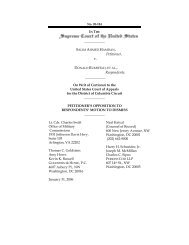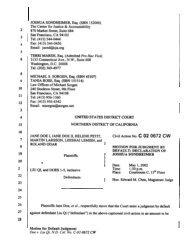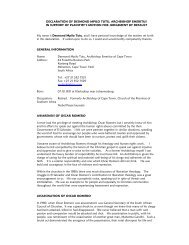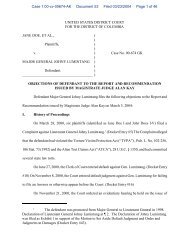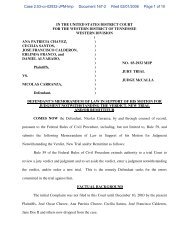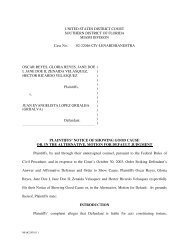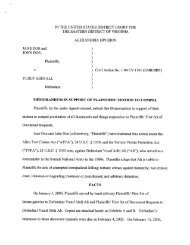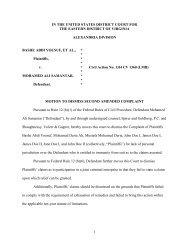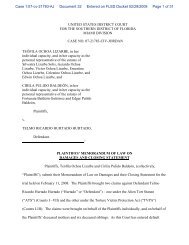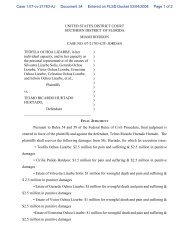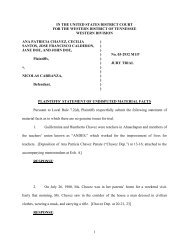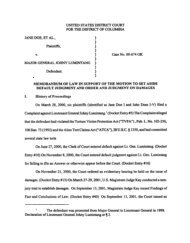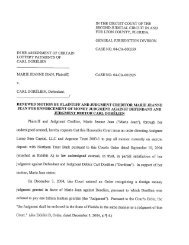SOSA v. ALVAREZ-MACHAIN - Legal Information Institute
SOSA v. ALVAREZ-MACHAIN - Legal Information Institute
SOSA v. ALVAREZ-MACHAIN - Legal Information Institute
You also want an ePaper? Increase the reach of your titles
YUMPU automatically turns print PDFs into web optimized ePapers that Google loves.
Cite as: 542 U. S. ____ (2004) 39Opinion of the Courtshould (and, indeed, inevitably must) involve an elementof judgment about the practical consequences of makingthat cause available to litigants in the federal courts. 21Thus, Alvarez’s detention claim must be gauged against——————sus in 1995 that genocide by private actors violates international law).21This requirement of clear definition is not meant to be the onlyprinciple limiting the availability of relief in the federal courts forviolations of customary international law, though it disposes of thiscase. For example, the European Commission argues as amicus curiaethat basic principles of international law require that before asserting aclaim in a foreign forum, the claimant must have exhausted any remediesavailable in the domestic legal system, and perhaps in other forasuch as international claims tribunals. See Brief for European Commissionas Amicus Curiae 24, n. 54 (citing I. Brownlie, Principles ofPublic International Law 472–481 (6th ed. 2003)); cf. Torture VictimProtection Act of 1991, §2(b), 106 Stat. 73 (exhaustion requirement).We would certainly consider this requirement in an appropriate case.Another possible limitation that we need not apply here is a policy ofcase-specific deference to the political branches. For example, there arenow pending in federal district court several class actions seekingdamages from various corporations alleged to have participated in, orabetted, the regime of apartheid that formerly controlled South Africa.See In re South African Apartheid Litigation, 238 F. Supp. 2d 1379(JPML 2002) (granting a motion to transfer the cases to the SouthernDistrict of New York). The Government of South Africa has said thatthese cases interfere with the policy embodied by its Truth and ReconciliationCommission, which “deliberately avoided a ‘victors’ justice’approach to the crimes of apartheid and chose instead one based onconfession and absolution, informed by the principles of reconciliation,reconstruction, reparation and goodwill.” Declaration of Penuell MpapaMaduna, Minister of Justice and Constitutional Development, Republicof South Africa, reprinted in App. to Brief for Government of Commonwealthof Australia et al. as Amici Curiae 7a, 3.2.1 (emphasis deleted).The United States has agreed. See Letter of William H. Taft IV, <strong>Legal</strong>Adviser, Dept. of State, to Shannen W. Coffin, Deputy Asst. Atty. Gen.,Oct. 27, 2003, reprinted in id., at 2a. In such cases, there is a strongargument that federal courts should give serious weight to the ExecutiveBranch’s view of the case’s impact on foreign policy. Cf. Republic ofAustria v. Altmann, 541 U. S. ___, ___ (2004) (slip op., at 23–24) (discussingthe State Department’s use of statements of interest in cases involvingthe Foreign Sovereign Immunities Act of 1976, 28 U. S. C. §1602 et seq.).




